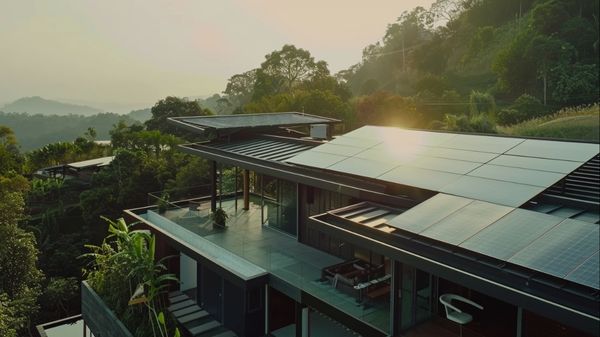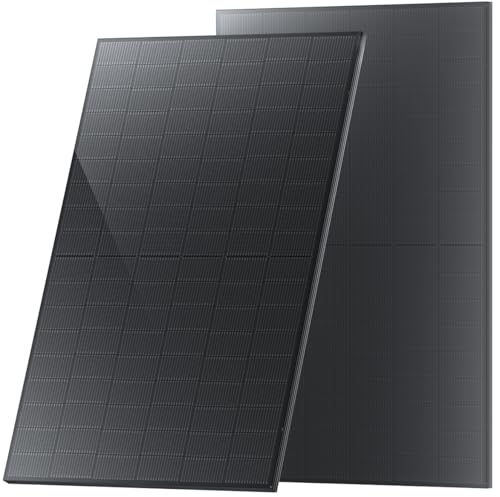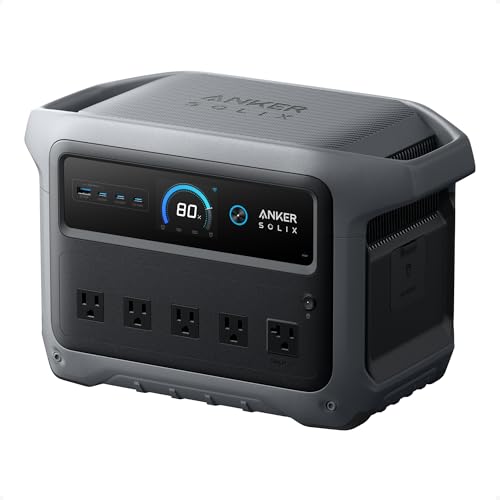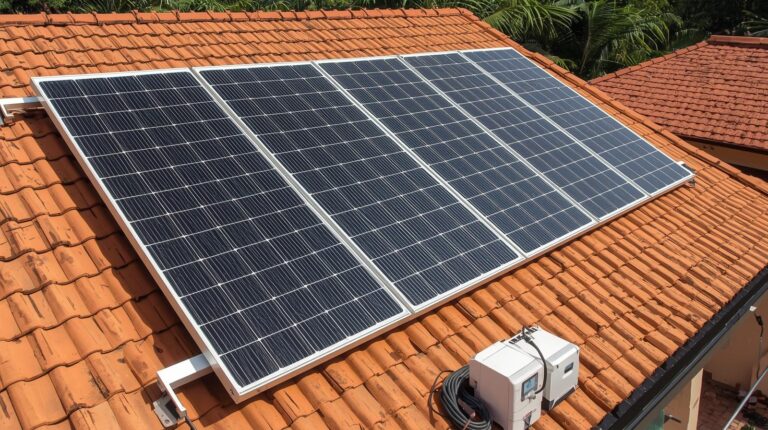When considering home solar panels, efficiency is essential for ideal power generation from sunlight, ensuring you maximize the benefits of solar energy. Factors influencing efficiency include the quality of materials, age of panels, and maintenance practices.
Factors such as panel orientation, seasonal adjustments, and regular cleaning also play an important role in enhancing efficiency. Monitoring systems offer real-time performance data, while advancements in solar technology, like microinverters and smart panels, further improve efficiency. Understanding these factors is key to harnessing the full potential of your solar panel system.
Key Takeaways
- Efficiency varies based on panel quality and technology.
- Regular maintenance ensures optimal performance.
- Orientation and cleaning impact energy production.
- Monitoring systems track efficiency in real-time.
- Advancements like microinverters boost conversion rates.
Solar Panel Efficiency Ratings
Solar panel efficiency ratings are vital when considering the effectiveness of your home solar system. With solar technology advancements and panel material innovations, it’s important to understand how efficiently your panels can convert sunlight into usable electricity.
Higher efficiency ratings mean more power production for the same amount of sunlight, maximizing your solar investment. When evaluating solar panels, look for those with the highest efficiency ratings to guarantee ideal energy generation for your home.
Efficiency ratings can vary based on the quality of materials used in the panels and the technology employed in the manufacturing process. By staying informed about the latest advancements in solar technology and panel materials, you can make informed decisions to boost the efficiency of your home solar power system.
Keep an eye out for new innovations that could further enhance the performance of your solar panels and increase your energy savings over time. Solar panels play a significant role in the transition to a sustainable energy future by harnessing solar energy from the sun.
Factors Affecting Solar Panel Efficiency
When it comes to the efficiency of your home solar panels, several key factors play an essential role. The orientation of your solar panels – whether they’re facing south, east, or west – markedly impacts their ability to harness sunlight.
Additionally, the age of your panels and regular maintenance practices can also influence their overall efficiency over time. Solar panels with a high conversion rate can maximize energy generation and improve efficiency.
Solar Panel Orientation
Proper orientation of your home solar panels can greatly impact their efficiency. To guarantee you’re maximizing the energy output of your solar panels, consider the following:
- Optimal Angles: Position your solar panels at angles that allow for maximum sunlight exposure throughout the day.
- Seasonal Adjustments: Make seasonal adjustments to the tilt of your panels to account for the changing position of the sun in different seasons.
- East-West Orientation: Consider an east-west orientation for your panels to capture sunlight in the morning and afternoon.
- Avoid Shading: Place your panels in areas that avoid shading from nearby trees, buildings, or other obstructions.
Panel Age and Maintenance
With time and regular maintenance, the efficiency of your home solar panels can be influenced by their age and upkeep. The panel lifespan is an important factor in determining how well your solar panels will perform over time.
As panels age, they may experience wear and tear, leading to a gradual decrease in efficiency. To mitigate this decline, it’s vital to schedule regular maintenance for your solar panels.
By conducting maintenance checks and cleaning sessions at recommended intervals, you can guarantee that your panels operate at their best capacity. The maintenance frequency will vary depending on factors such as environmental conditions and panel usage.
Keeping a close eye on the condition of your panels and addressing any issues promptly can help extend their lifespan and preserve their efficiency.
Calculating Energy Production
To understand how much energy your home solar panels can produce, you need to take into account factors such as the size of the system, the efficiency of the panels, the amount of sunlight your location receives, and the round-trip efficiency rates of the battery system for energy storage.
Return on Investment (ROI) Analysis
When evaluating the efficiency of home solar panels, considering the Return on Investment (ROI) is essential. This analysis involves evaluating factors such as different ROI calculation methods, the time it takes to break even on your initial investment, the availability of financial incentives that can impact your overall return, and the role of Net Metering in maximizing cost savings over time.
ROI Calculation Methods
If you’re considering investing in home solar panels, understanding the ROI calculation methods is essential. When evaluating the return on investment for solar panels, consider the following key factors:
- Installation Costs: Assess the initial expenses involved in purchasing and installing the solar panel system.
- Financing Options: Explore different financing choices such as loans, leases, or power purchase agreements to determine the most cost-effective approach.
- System Sizing: Verify the solar panel system is appropriately sized to meet your energy needs and maximize savings.
- Local Regulations: Familiarize yourself with local regulations and incentives that can impact the financial benefits of solar panel installation.
Time to Break-even
Achieving a timely break-even point is a crucial aspect of evaluating the return on investment (ROI) for home solar panels. The time it takes to break even on your investment in solar panels depends on various factors such as installation costs, energy savings, utility rates, geographical location, panel technology, financing options, system size, installation incentives, environmental impact, and market trends.
Here’s why the break-even point matters:
- Installation Costs: Higher upfront costs may extend the break-even period.
- Energy Savings: Greater energy savings can shorten the time to recoup your investment.
- Utility Rates: Fluctuating rates can impact how quickly you recover your initial investment.
- Geographical Location: Sunnier regions may lead to quicker break-even times due to increased energy generation.
- Panel Technology: More efficient panels can accelerate the break-even period.
Considering these factors can help you assess the viability of installing solar panels and make an informed decision based on your financial goals and environmental considerations.
Financial Incentives Availability
To assess the financial incentives available for home solar panels, consider various factors that can impact your return on investment (ROI). When evaluating the financial benefits of investing in solar panels, it’s essential to take into account the following:
- Federal Tax Incentives: Explore potential tax credits offered by the federal government for installing solar panels.
- State Rebates: Check if your state provides rebates or financial incentives for switching to solar energy.
- Utility Programs: Investigate utility company programs that may offer incentives or discounts for solar panel installation.
- Financing Options: Research different financing options such as solar loans to help make the upfront costs more manageable.
Monitoring System Performance
For homeowners with solar panels, monitoring system performance is essential to guarantee peak energy production. By utilizing advanced monitoring technology, you can track the efficiency of your solar panels and verify they’re operating at their best.
Monitoring systems not only provide real-time data on your solar panel performance but also offer comprehensive protection against potential issues, ensuring comprehensive protection features are in place.
Maximizing Solar Panel Efficiency
Maximizing the efficiency of your home solar panels is essential for getting the most out of your renewable energy system. To make the most of your solar panels, consider the following tips:
- Regular Maintenance: Keep your panels clean and free of debris to guarantee peak sunlight absorption.
- Invest in Solar Technology Advancements: Explore new technologies like microinverters or smart panels that can boost efficiency.
- Utilize Energy Storage Solutions: Incorporate batteries to store excess energy for use during low sunlight periods or power outages.
- Monitor System Performance: Install a monitoring system to track energy production and identify any issues promptly.
Conclusion
In summary, home solar panels can be highly efficient, with factors such as panel ratings, orientation, and shading affecting their performance. By carefully monitoring and maximizing efficiency, homeowners can calculate energy production, analyze return on investment, and ultimately reduce their carbon footprint.
With proper maintenance and optimization, solar panels can provide a reliable and sustainable source of energy, offering a visually striking representation of environmentally friendly living.








